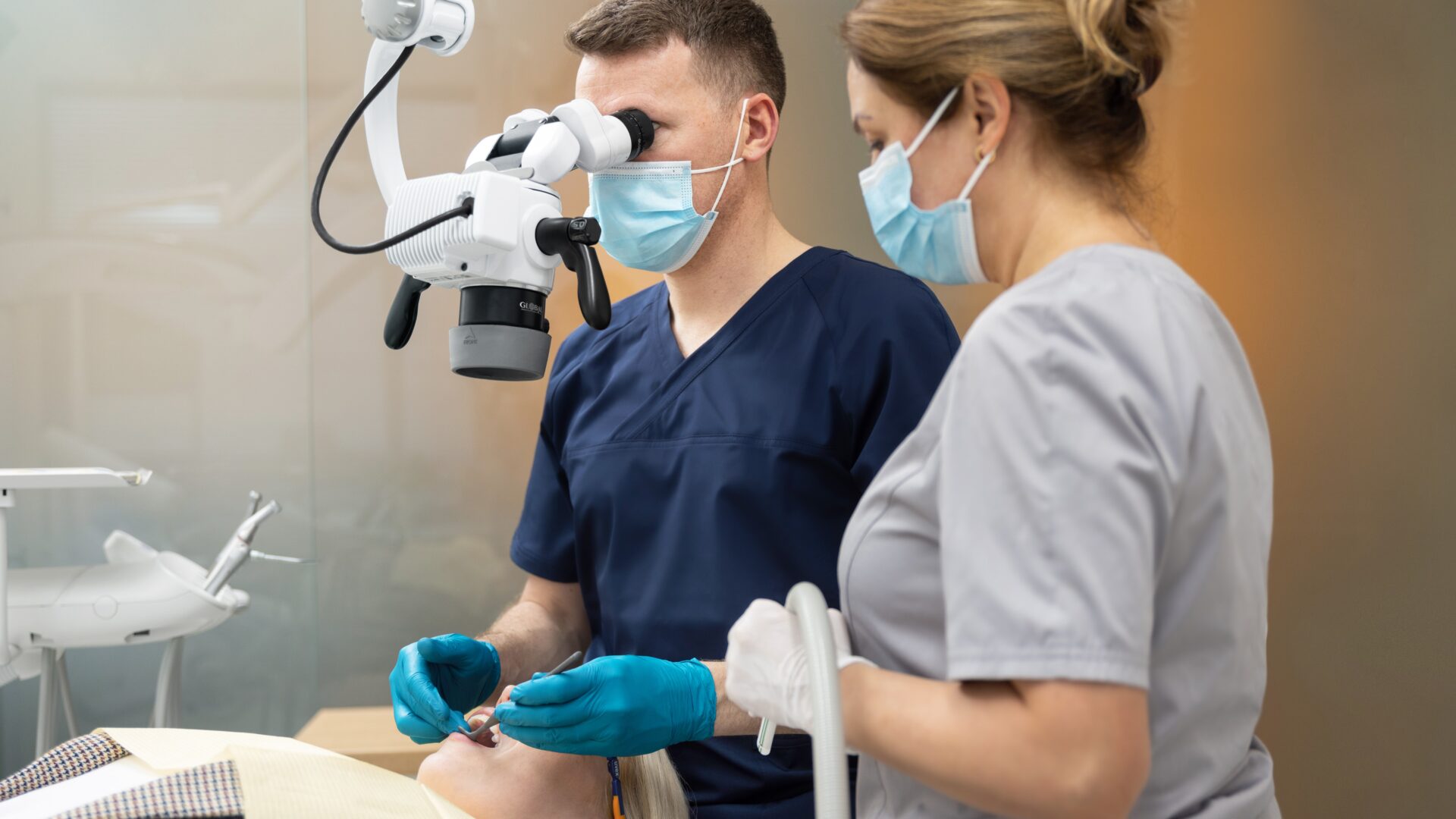Poor oral health and untreated tooth decay or gum problems can lead to tooth loss. But in worse cases, the loss is not limited to just a tooth or two – more serious complications can develop, and they don’t just affect the mouth – the heart and respiratory system can take a battering, for example, and chronic swelling can develop. But this is often not known or simply not believed.
How to look after your teeth, common oral health problems and the impact of oral health on overall health is explained by Dr Kristina Kiisa Hambaravi specialists.
In addition to the dentist, you should also visit a hygienist.
The most common oral diseases are caries and mouth sores. Almost all oral health problems start from poor oral hygiene and eating habits. They can develop over a period of years or even in a few days. Oral diseases can still be prevented with regular oral care and visits to the dentist and dental hygienist.
Children and adults alike should visit the dentist once a year, even if there is no pain or discomfort. If there is pain, the problem has progressed too far and it would have been wise to see a dentist earlier.
In addition to the dentist, you should also visit an oral hygienist and it is recommended to do this every 7-8 months, more often if necessary. This will help to prevent deposits, pigment and tartar build-up.
When eating out, it is important to keep an eye on what nutrients are being consumed, whether there are enough vitamins and minerals in the food and how oily the products are.
Book an appointment to a dentist or hygienist through Stebby HERE.
Poor oral hygiene can put a dent in your overall health
Poor oral health is associated with the onset or worsening of several chronic diseases (read more about the oral health survey on the Tervisekassa website HERE).
If there is a cavity in the tooth and the mouth is inflamed, microbes can enter the bloodstream and directly damage the cardiovascular system, as well as move down the throat and cause respiratory and digestive problems.
Studies have also confirmed links between periodontal disease and cardiovascular disease. (see the study HERE), diabetes (read more HERE) and pregnancy issues (see the studies HERE and HERE).
Patients with gum disease often have weak immune systems and are therefore more susceptible to infections. However, an infection that starts in the mouth can lead to chronic kidney disease, which affects many parts of the body and can be fatal if it causes kidney failure or cardiovascular disease.
Treating your teeth can be quite expensive and the compensation paid by Tervisekassa is usually not enough. To make sure you don’t miss out on having your teeth fixed for lack of money, it’s worth considering taking out health insurance.
What is proper dental care?
- For brushing your teeth, you should rather use an electric toothbrush because it is easier to manage. Brushing with a regular toothbrush is often done with too much or too little force, or the brush is not moved correctly.
- Teeth should be washed and brushed at least twice a day – morning and evening. It doesn’t matter whether this is done before or after eating. However, it is important to remember that brushing before breakfast removes germs that have built up during the night, which would actually prevent a major acid attack on the teeth, as there are no more germs in the mouth after brushing.
- After a meal, it is advisable to either brush your teeth, simply rinse them with water or chew xylitol-containing gum. NSAIDs, however, are not necessary for your teeth and should only be taken after eating if you want to temporarily improve your breath.
- The use of mouthwash is not compulsory and is always necessary, as long as brushing and threading techniques are correct.
- When it comes to toothpastes, there is a fairly common perception that charcoal toothpastes whiten teeth, but unfortunately this is not true. The so-called whitening effect is due to the granular and abrasive texture of the charcoal, which removes the pigment and loose, soft tartar from the teeth. However, unfortunately, its inappropriate and frequent use is harmful to teeth.
- Teeth whitening with products sold in shops is not safe. Anyone who longs for whiter teeth should first consult a dentist or a dental hygienist, as over-the-counter whiteners are not suitable for all teeth and gums, and can do harm instead of good.






